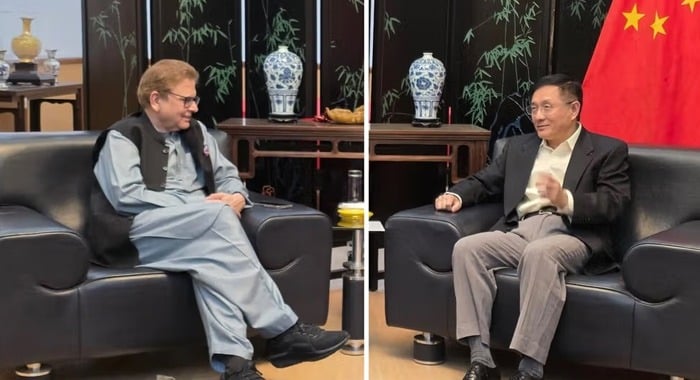In a significant diplomatic development, Afghanistan, Pakistan, and China are set to hold a trilateral meeting in Kabul on Saturday, marking a rare high-level engagement amid evolving regional alignments and persistent security challenges.
The meeting was preceded by a visit from Pakistan’s Special Representative for Afghanistan, Mohammad Sadiq, who met with his Chinese counterpart, Yue Xiaoyong, in Kabul on Friday. While no detailed statement was issued, Sadiq shared a photograph of the meeting on social media, signaling early momentum ahead of the scheduled talks.
Reliable sources have confirmed to Afghanistan International that representatives from the Chinese and Pakistani governments, along with officials from the Taliban administration, will participate in the “Kabul Trilateral Meeting.” The agenda is expected to center on regional trade, diplomatic cooperation, and pressing security concerns that impact all three parties.
Although official confirmation and details from Kabul, Islamabad, or Beijing remain pending, the quiet but deliberate diplomacy signals a shared recognition of the need for regional stability and structured dialogue.
The meeting also underscores the contrasting approaches of China and Pakistan toward the Taliban government. Beijing, while not formally recognizing the Taliban regime, has maintained pragmatic relations—accepting the Taliban-appointed ambassador and preserving an active diplomatic footprint in Kabul. In contrast, Pakistan’s once-warm ties with the Taliban have cooled amid growing security concerns, particularly Islamabad’s repeated accusations that the Taliban are sheltering members of Tehreek-e-Taliban Pakistan (TTP)—a charge the Taliban leadership continues to deny.
The upcoming talks are being closely watched by regional observers as a potential step toward recalibrating strategies, fostering economic engagement, and addressing long-standing security issues that have impeded cooperation in the post-U.S. withdrawal era.
If successful, Saturday’s trilateral engagement could lay the groundwork for a more coordinated regional framework—one shaped not by ideology, but by shared interests in trade, connectivity, and counterterrorism.





